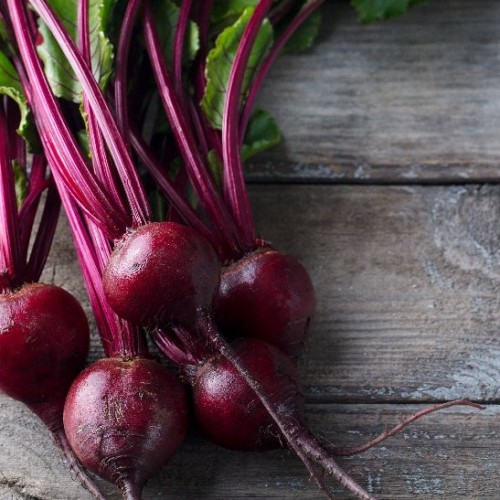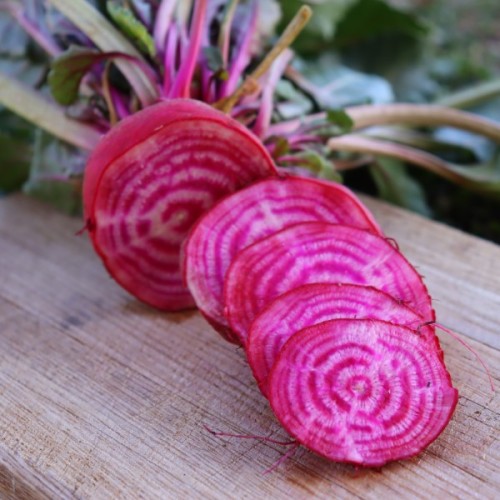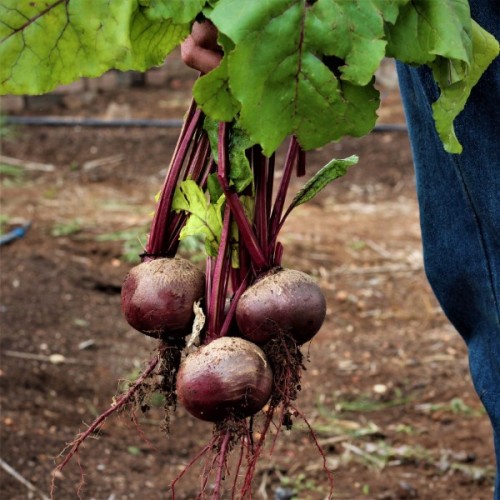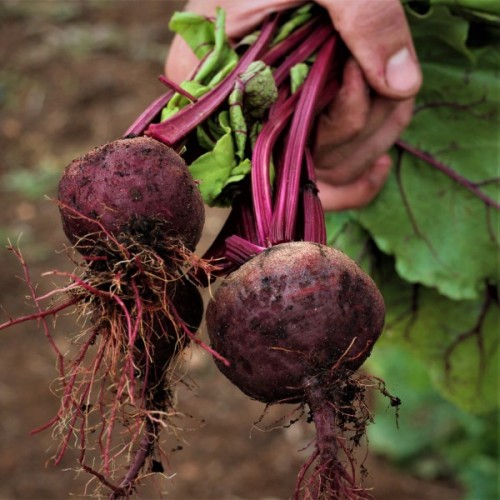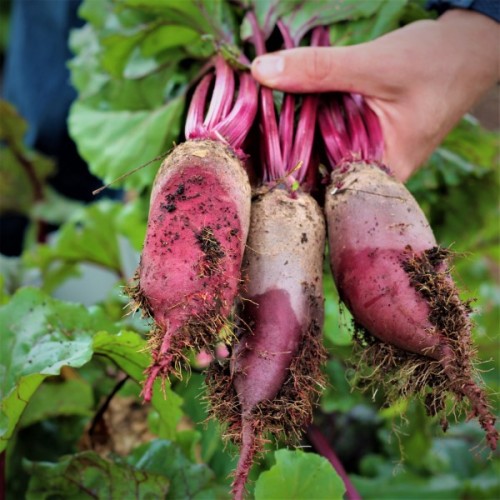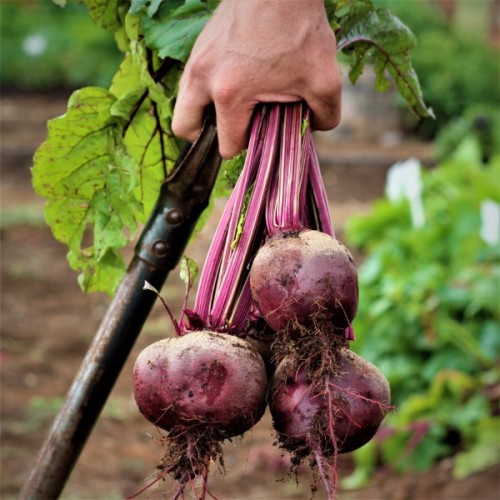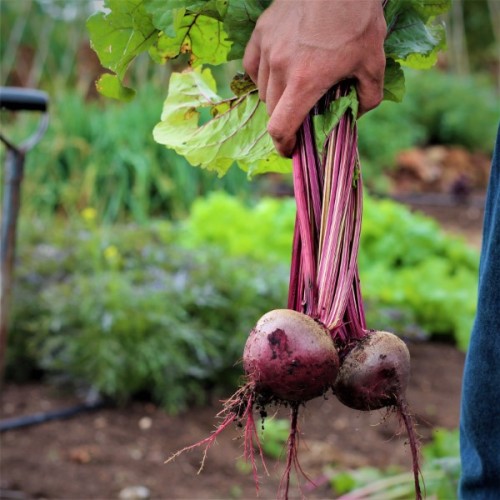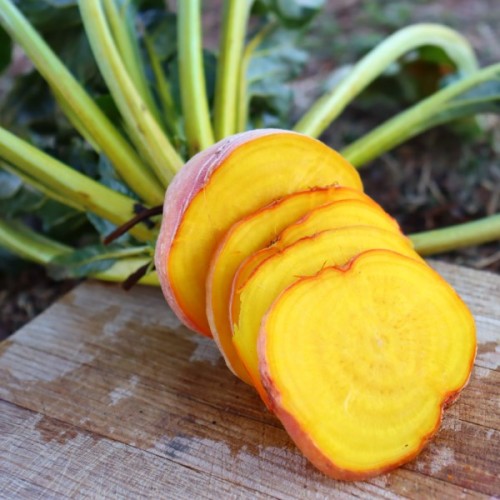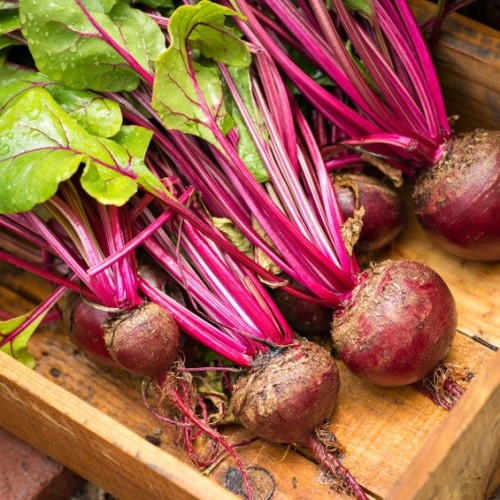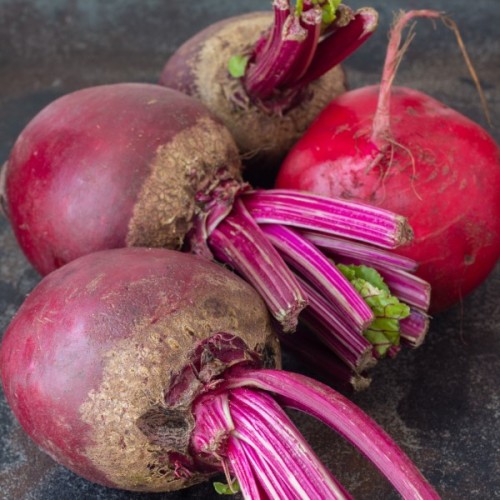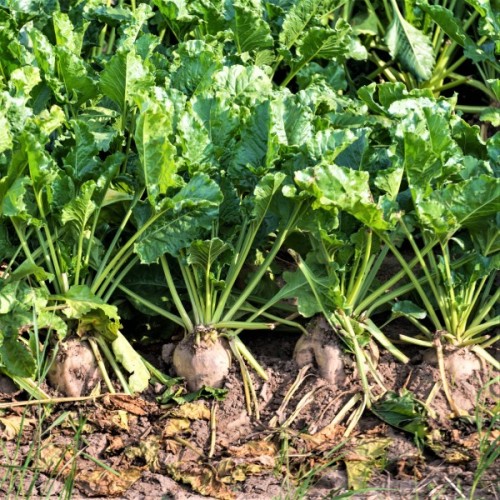Beetroot
Beetroot is a valuable vegetable that is semi-hardy and biennial. It is grown year-round for its sweet, tender, succulent roots. Beet contains more sugar than any other vegetable, and its earthy taste and aroma are owed to an organic compound called geosmin.
Beets come in an array of colours, sizes, and shapes. The beets we know today originated in the Middle Ages from a plant called sea-beet (Beta vulgaris var. maritima) that grew on the dunes along the Caspian Sea. Originally, only the leaves were used because the roots were still small and underdeveloped. Beets with better-developed roots were documented in Roman literature at about 200 AD. In 300 BC, Romans regarded beetroot as a delicacy and ate it with vinegar and onions. Roman armies used beet as horse feed.
Centuries of selection resulted in the different kinds of beet we know today:
- Swiss chard – those with abundant tender leaves.
- Red table beets – the most common beets we all know.
- Huge mangle beets – used for livestock feed.
- Sugar beets – containing up to 20% sugar, used for a large part of the world’s sugar production.
Beetroot is mostly boiled and eaten with butter. Some varieties are very good for canning and cooled-down sliced beets are used as a salad with onions, spices, vinegar and sugar. Greens can be cooked just like Swiss chard (or as South Africans like to call it, "spinach") and are even more nutritious than the beet's roots and true spinach. Some beetroot, like the Chioggia, can even be used as a raw slicing beet in salad for a striking visual effect.
Beets are best directly seeded as they do not transplant well. Soak the corky seeds in water overnight to aid in germination. Plant in full sun, about two weeks before the last spring frost. They do best in loose, well-prepared soil with lots of organic matter. To grow choice beets, encourage quick, steady growth by keeping the soil moist and weed-free.
Coastal Areas: Feb-Apr, Jul-Nov
Inland Areas: Feb-Mar, Aug-Oct
Subtropical Areas: Feb-Apr, Jul-Aug
Bull's Blood
Beta vulgarisThis outstanding heirloom variety from 1840 produces round, slightly flattened, deep re..
R31.35
Chioggia Beetroot
Beta vulgarisAlso known as Candy Stripe, Candy Cane, Bull’s Eye, Turnip Bassano. A beautifully-colou..
R31.35
Crimson Globe
Beta vulgaris Crimson Globe is a great, fine-fleshed eating and storage variety. Grows well in most..
R31.35
Crosby Egyptian
Beta vulgarisA celebrated heirloom variety first introduced in Boston, USA, by farmer Josiah Crosby...
R31.35
Cylindra
Beta vulgarisAs the name suggests, this variety produces a long, slim, cylindrical-shaped beetroot, ..
R31.35
Detroit Dark Red Beetroot
Beta vulgarisDetroit Dark Red is one of the most famous beetroot varieties, released in 1892 by the ..
R31.35
Early Wonder
Beta vulgaris A popular heirloom beet that produces high yields of deep red roots. This well-li..
R31.35
Golden Globe Beetroot
Beta vulgaris A beautiful golden yellow beetroot, released in the USA in the early 1940s. This be..
R31.35
Lutz Green Leaf Beetroot (Red Stem)
Beta vulgarisMost commonly referred to as "Winter keeper," this beetroot has outstanding storage pot..
R31.35
Ruby Queen Beetroot
Beta vulgarisMedium-sized, smooth, deep red globes that retain their colour well when canned. The sw..
R31.35
Sugar Beet
Beta vulgaris THIS is the beetroot you're looking for if you want to make your own sugar. Histori..
R31.35

